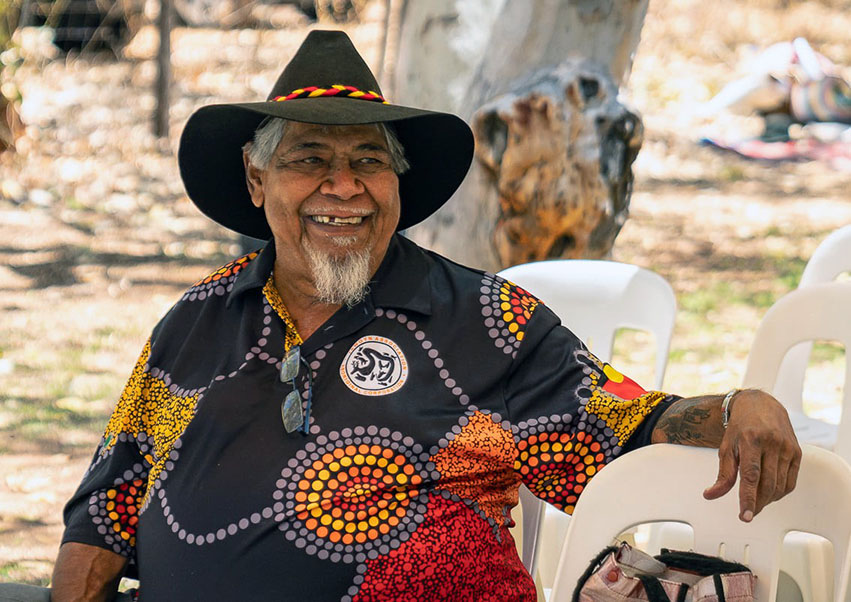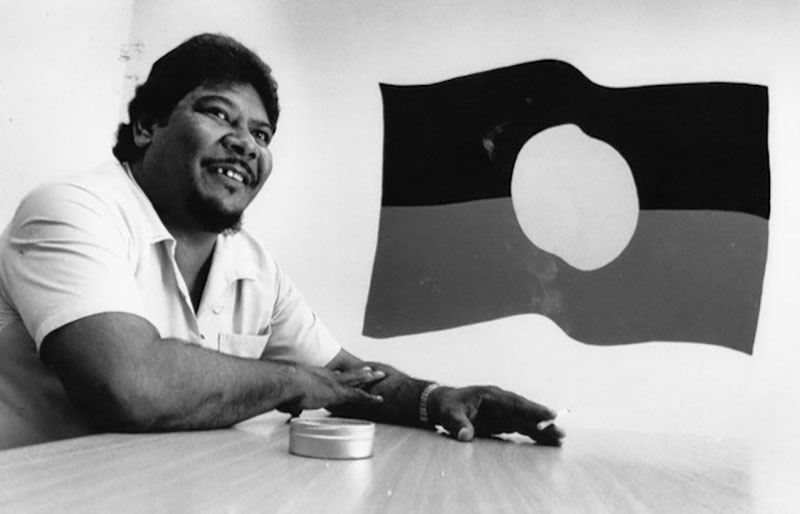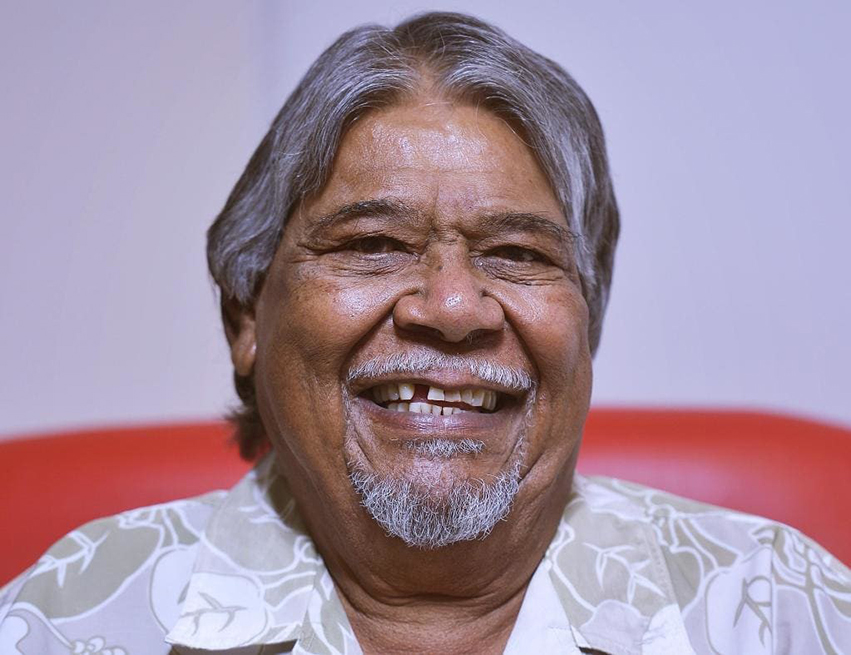- connecting our global network
31 July 2020
A tribute to first NT Aboriginal Cabinet Minister John 'Jak' Ah Kit

John 'Jak' Ah Kit (1950 - 2020)
Certificate in Community Development
Associate Diploma in Social Work
CULTURAL ADVICE: We are using Mr Ah Kit's full name and image with permission from his family. Aboriginal and Torres Strait Islander people should also be aware that this article contains images, names, and quotes of a deceased person.
Earlier this month, the family and loved ones announced the passing of trailblazing politician, tireless advocate for Aboriginal people, and University of South Australia alum, Mr John ‘Jak’ Ah Kit. Remembered by everyone he encountered as a man with a great sense of humour, endless wisdom and strength, and profound his love of country, friends and family.
Mr Ah Kit made an indelible mark on Australian life and his community as the Northern Territory’s first Aboriginal minister and his continuous advocation of Aboriginal people’s countries and their rights.
Born in Alice Springs on July 22, 1950, Mr Ah Kit was raised in Darwin at Parap Camp, with his early jobs involving carting parcels for customers at Woolworths, selling newspapers on the streets, work at the abattoir, and cattle stations mustering bullocks on horseback.
Mr Ah Kit cites this time period as incredibly influential, setting him on a path to campaigning for justice and politics, recalling these fond memories in a 2002 speech for the 'Understanding and Implementing Good Governance for Indigenous Communities and Regions' Conference in Canberra.
“Right through this period, I am now aware that I was storing experiences and ideas in the back of my mind. I was coming to realise that politics – mainstream, Aboriginal, sporting, you name it – affected all of our lives.”
When in 1971, at 21-years-old, Mr Ah Kit attended his first NAIDOC march in Alice Springs to hear activist and first Indigenous Australian to graduate tertiary education, Charles 'Kwementyaye' Perkins AO speak. Their meeting proved life changing for Mr Ah Kit.

“I found myself marching in the street yelling out radical things. In those days, Aboriginal people who came out and showed their colours and started to support the cause were always labelled as stirrers. They put you down.”
“But I just felt, ‘No, I'm not going to be put down, you can say what you like but I need to march. I want to march and I need to find out more about politics’.”
Mr Ah Kit had been struck by a yearning to return to study. He then enrolled in the Aboriginal Task Force at the then South Australian Institute of Technology (SAIT) – now the University of South Australia (UniSA) – where he obtained a Certificate in Community Development and a Diploma in Social Work towards the end of the seventies.
Adelaide was however not without its difficulties as Mr Ah Kit says it was here, he became acutely aware of prejudice, and gained a valuable understanding of racism and its impact on Aboriginal people, and other minority groups.
But in returning to study he says he was able to sort himself out, where he was heading and what he wanted to achieve, which included “coming to grips with my Aboriginality”. He came back changed and “determined to make a contribution.”
After graduating and spending time as a District Officer with the Department of Social Security in Katherine, Mr Ah Kit quickly became involved in Aboriginal-controlled organisations proving to be a true asset. First, in charge of Kalano, Katherine’s Aboriginal town organisation, and then seven years as the Director of the Northern Land Council where he campaigned for land rights for Aboriginal people in the Northern Territory.
He helped to establish the Jawoyn Association and eventually became the Association’s Director from 1991 to 1995. Here he made strides in the Jawoyn traditional owners’ battle to prevent mining at Coronation Hill, a sacred site to the community, eventually winning over Prime Minister Bob Hawke AC and his support too.

1995 saw Mr Ah Kit elected as Labor member for Arnhem becoming the Northern Territory’s first Aboriginal cabinet minister in the Martin Labor Government in 2001. He was the ninth Indigenous parliamentarian in Australia and served in the NT Legislative Assembly as the member for Arnhem for 10 years.
In this role he never stopped advocating and fighting for Aboriginal rights, serving as Minister for Community Development, Housing, Local Government, Sport and Recreation, Regional Development and Minister assisting the Chief Minister on Indigenous Affairs.
Even after his retirement from Parliament, Mr Ah Kit served as the chairman of the Nitmiluk National Park Board of Management, an adviser to the Jawoyn Association, and served on the reference group to the Anderson-Wild inquiry into child abuse in Aboriginal communities. All culminating in a National NAIDOC Awards lifetime achievement award in 2007.
On Wednesday, July 22 2020, on what would have been his 70th Birthday, hundreds of people congregated in TIO Stadium in Marrara, Darwin for his state funeral, paying tribute to a man that always stood his ground and gave a voice to those that needed it the most.
John 'Jak' Ah Kit wore his Aboriginal heritage with pride and his wisdom and strength will continue to inspire generation after generation.
“One of the loveliest things I've seen in my lifetime of the struggle, is coming out of the seventies, into the eighties where Aboriginal kids started to wear our colours with pride. You know, the anklets, the necklaces, the watches, and the t-shirts.
“It’s now very much a pride and there's no second thoughts about “my Aboriginality”. It’s now “That's our colours and I'm wearing them.”
“Indigenous Australians all have to learn to do this, too, and it is up to us to keep our eyes out for bright young Indigenous leaders coming through in the future. They’ll be the ones that will take our place – but they will remember the old people, and still be wearing the colours.”


